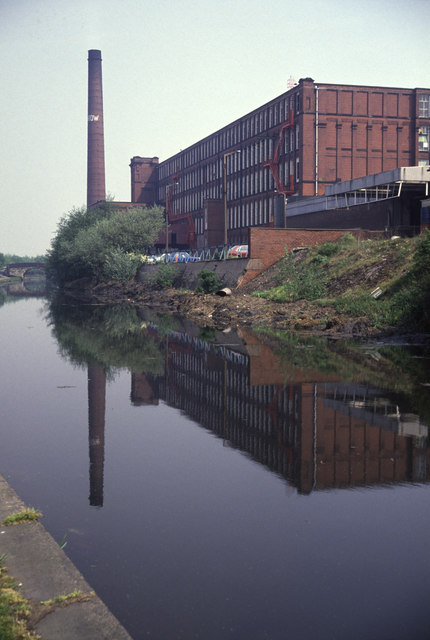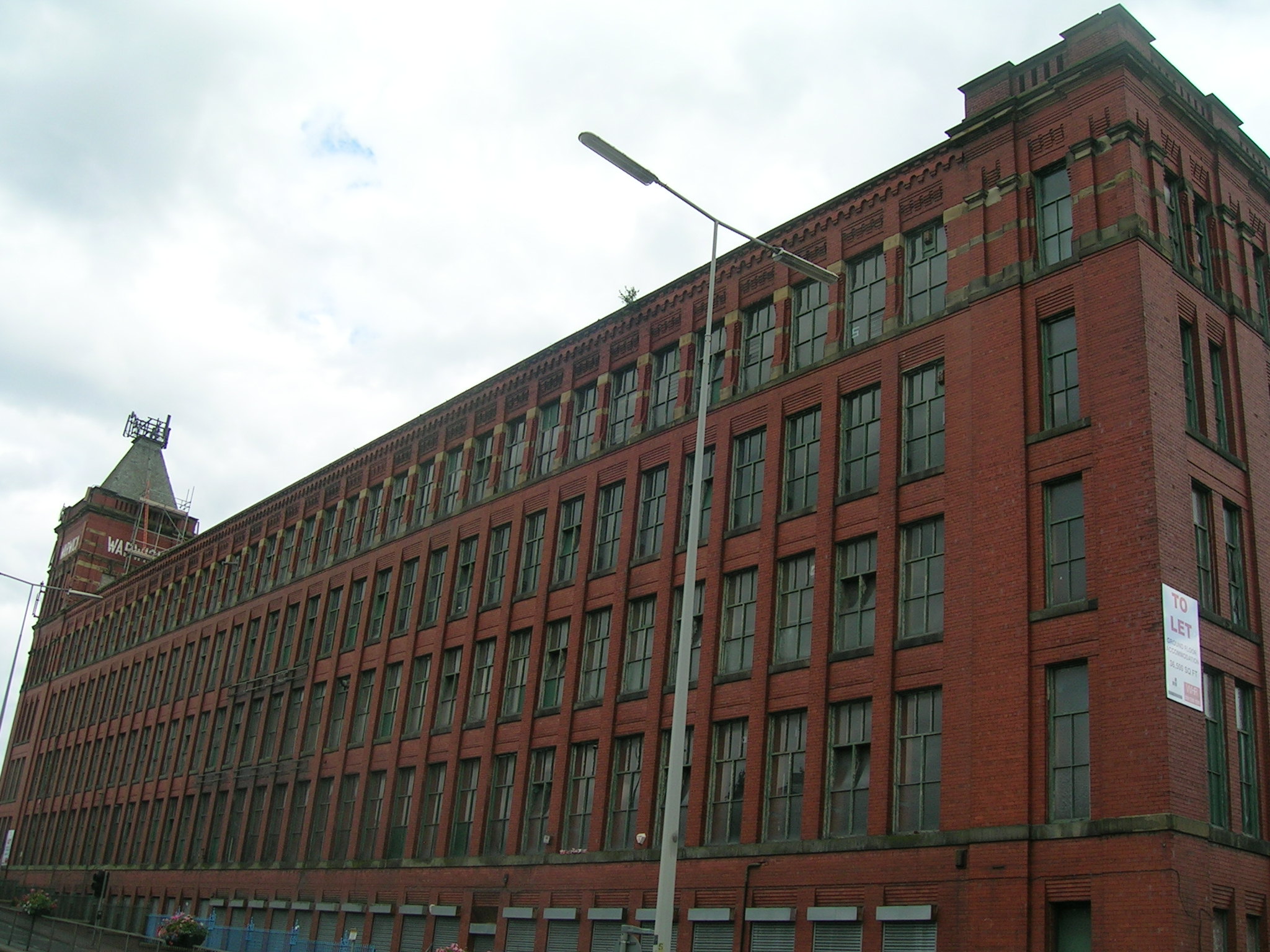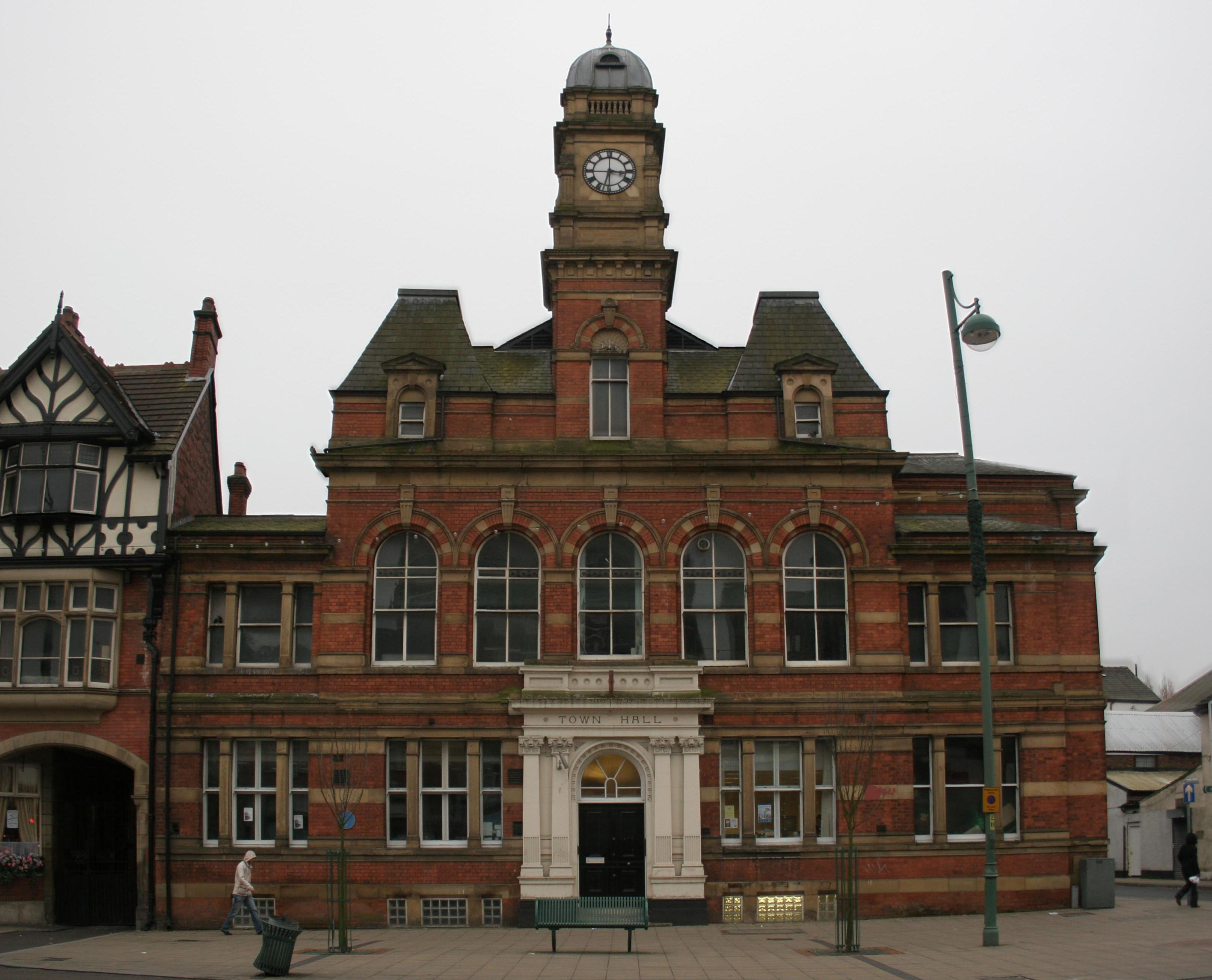|
Shudehill Interchange
Shudehill Interchange is a transport hub between Manchester Victoria station and the Northern Quarter in Manchester city centre, England, which comprises a Metrolink stop and a bus station. History The tracks through the site were opened in 1992; however, the tram stop did not open until 31 March 2003. The bus part of the interchange opened on 29 January 2006. Construction had initially started on the bus station in 1998 and it was planned to have been completed and fully operational by 2000, but several disputes over the ownership of the site along with two public inquiries over the course of five years resulted in the construction work on the station being halted until 2003. Metrolink services The Shudehill stop is in Zone 1, forming part of the Bury line. Trams run through Shudehill to Bury, Altrincham, , and . Service pattern Services run at least every 12 minutes on all routes. At peak times (07:15 – 19:30 Monday to Friday, 09:30 – 18:30 Saturday): *5 trams ... [...More Info...] [...Related Items...] OR: [Wikipedia] [Google] [Baidu] |
Manchester Metrolink
Manchester Metrolink (branded locally simply as Metrolink) is a tram/ light rail system in Greater Manchester, England. The network has 99 stops along of standard-gauge route, making it the most extensive light rail system in the United Kingdom. Metrolink is owned by the public body Transport for Greater Manchester (TfGM) and operated and maintained under contract by a Keolis/ Amey consortium. In 2021/22, 26 million passenger journeys were made on the system. The network consists of eight lines which radiate from Manchester city centre to termini at Altrincham, Ashton-under-Lyne, Bury, East Didsbury, Eccles, Manchester Airport, Rochdale and Trafford Centre. It runs on a mixture of on-street track shared with other traffic; reserved track sections segregated from other traffic, and converted former railway lines. Metrolink is operated by a fleet of 147 high-floor Bombardier M5000 light rail vehicles. Each service runs to a 12-minute headway; stops with more than one serv ... [...More Info...] [...Related Items...] OR: [Wikipedia] [Google] [Baidu] |
Diamond Bus North West
Diamond Bus (North West) Ltd., trading as Diamond North West, is a bus operator providing services in the districts of Bolton and Wigan in Greater Manchester operating an extensive commercial network along with tendered services on behalf of Transport for Greater Manchester. It also serves some areas of the districts of Salford and Trafford. The company was founded as ''Green Triangle Buses'' and then subsequently renamed ''South Lancs Travel'' before being purchased by Rotala and rebranded as Diamond North West in 2015. In August 2019, Diamond North West purchased First Manchester's Bolton depot. History South Lancs Travel Green Triangle Buses was established in April 1998 by Martin Bott and David Stewart. The new business began with two new Mercedes-Benz Varios which were used on a Greater Manchester Passenger Transport Executive tender. These were joined by three South Lancashire Transport (also owned by the two partners) single deckers for use on school services. Further ... [...More Info...] [...Related Items...] OR: [Wikipedia] [Google] [Baidu] |
Free Buses In Greater Manchester
free bus is a zero-fare bus system that operates in Greater Manchester. The system was first introduced in Manchester city centre in 2002, with three routes linking the city's major thoroughfares and stations with its main commercial, financial and cultural districts. Manchester History Transport across the Greater Manchester conurbation historically suffered from poor north–south connections due to the fact that Manchester's main railway stations, Piccadilly and Victoria, were built in the 1840s on peripheral locations outside Manchester city centre. In the 1960s and 1970s, the public transport authority SELNEC evaluated a number of proposals to connect Manchester's northern and southern rail terminals, including several types of monorail systems and metro-style systems. A scheme was promoted to build an underground rail link across Manchester city centre, known as the Picc-Vic tunnel, but this failed to attract the necessary government funding and the project was canc ... [...More Info...] [...Related Items...] OR: [Wikipedia] [Google] [Baidu] |
The Printworks (Manchester)
The Printworks is an urban entertainment venue offering a cinema, clubs and eateries, located on the corner of Withy Grove and Corporation Street in Manchester city centre, England. Original print works The Printworks entertainment venue is located on the revamped Withy Grove site of the business premises of the 19th century newspaper proprietor Edward Hulton, established in 1873 and later expanded. Hulton's son Sir Edward Hulton expanded his father's newspaper interests and sold his publishing business based in London and Manchester to Lord Beaverbrook and Lord Rothermere when he retired in 1923. Most of the Hulton newspapers were sold again soon afterwards to the Allied Newspapers consortium formed in 1924 (renamed Kemsley Newspapers in 1943 and bought by Roy Thomson in 1959). Earlier names of the buildings associated with publishing that were incorporated into the development include Withy Grove Printing House, the Chronicle Buildings, This web page includes various ... [...More Info...] [...Related Items...] OR: [Wikipedia] [Google] [Baidu] |
Trafford Centre
The Trafford Centre is a large indoor shopping centre and entertainment complex in Greater Manchester, England. It opened in 1998 and is third largest in the United Kingdom by retail space. Originally developed by the Peel Group, the Trafford Centre was sold to Capital Shopping Centres, later to become Intu, in 2011 for £1.65 billion setting a record as the costliest single property sale in British history. The battle to obtain permission to build the centre was amongst the longest and most expensive in United Kingdom planning history. the Trafford Centre had Europe's largest food court and the UK's busiest cinema. History Genesis The site was owned by the Manchester Ship Canal Company which John Whittaker's Peel Holdings had been acquiring shares in since 1971 Manchester City Council also had a stake, but by the mid 1980s Whittaker had a majority control and proposed building an out-of-town shopping centre, and other schemes. The council faced a conflict of interes ... [...More Info...] [...Related Items...] OR: [Wikipedia] [Google] [Baidu] |
City Of Salford
The City of Salford () is a metropolitan borough within Greater Manchester, England. The borough is named after its main settlement, Salford. The borough covers the towns of Eccles, Swinton, Walkden and Pendlebury, as well as the villages and suburbs of Monton, Little Hulton, Boothstown, Ellenbrook, Clifton, Cadishead, Pendleton, Winton and Worsley. The borough has a population of 270,000, and is administered from the Salford Civic Centre in Swinton. Salford is the historic centre of the Salford Hundred an ancient subdivision of Lancashire. The City of Salford is the 5th-most populous district in Greater Manchester. The city's boundaries, set by the Local Government Act 1972, include five former local government districts. It is bounded on the southeast by the River Irwell, which forms part of its boundary with Manchester to the east, and by the Manchester Ship Canal to the south, which forms its boundary with Trafford. The metropolitan boroughs of Wigan, Bolton, and ... [...More Info...] [...Related Items...] OR: [Wikipedia] [Google] [Baidu] |
Rochdale
Rochdale ( ) is a large town in Greater Manchester, England, at the foothills of the South Pennines in the dale on the River Roch, northwest of Oldham and northeast of Manchester. It is the administrative centre of the Metropolitan Borough of Rochdale, which had a population of 211,699 in the 2011 census. Located within the historic boundaries of the county of Lancashire. Rochdale's recorded history begins with an entry in the Domesday Book of 1086 under "Recedham Manor". The ancient parish of Rochdale was a division of the hundred of Salford and one of the largest ecclesiastical parishes in England, comprising several townships. By 1251, Rochdale had become important enough to have been granted a Royal charter. Rochdale flourished into a centre of northern England's woollen trade, and by the early 18th century was described as being "remarkable for many wealthy merchants". Rochdale rose to prominence in the 19th century as a mill town and centre for textile manufacture ... [...More Info...] [...Related Items...] OR: [Wikipedia] [Google] [Baidu] |
Middleton, Greater Manchester
Middleton is a town in the Metropolitan Borough of Rochdale, Greater Manchester, England, on the River Irk southwest of Rochdale and northeast of Manchester city centre. Middleton had a population of 42,972 at the 2011 Census. It lies on the northern edge of Manchester, with Blackley to the south and Moston to the south east. Historically part of Lancashire, Middleton's name comes from it being the centre of several circumjacent settlements. It was an ecclesiastical parish of the hundred of Salford, ruled by aristocratic families. The Church of St Leonard is a Grade I listed building. The Flodden Window in the church's sanctuary is thought to be the oldest war memorial in the United Kingdom, memorialising the archers of Middleton who fought at the Battle of Flodden in 1513. In 1770, Middleton was a village of twenty houses, but in the 18th and 19th centuries it grew into a thriving and populous seat of textile manufacture and it was granted borough status in 1886. Langley ... [...More Info...] [...Related Items...] OR: [Wikipedia] [Google] [Baidu] |
Eccles, Greater Manchester
Eccles () is a town in the City of Salford in Greater Manchester, England, west of Salford and west of Manchester, split by the M602 motorway and bordered by the Manchester Ship Canal to the south. The town is famous for the Eccles cake. Eccles grew around the 13th-century Parish Church of St Mary. Evidence of pre-historic human settlement has been discovered locally, but the area was predominantly agricultural until the Industrial Revolution, when a textile industry was established in the town. The arrival of the Liverpool and Manchester Railway, the world's first passenger railway, led to the town's expansion along the route of the track linking those two cities. History Toponymy The derivation of the name is uncertain, but two suggestion have been proposed. The received one is that the "Eccles" place-name is derived from the Romano-British ''Ecles'' or ''Eglys'' ("eglwys" in Welsh means "church"), which in turn is derived from the Ancient Greek Ecclesia via the La ... [...More Info...] [...Related Items...] OR: [Wikipedia] [Google] [Baidu] |
Bury, Greater Manchester
Bury ( ) is a market town on the River Irwell in Greater Manchester, England. Metropolitan Borough of Bury is administered from the town, which had an estimated population of 78,723 in 2015. The town is within the historic county boundaries of Lancashire. It emerged in the Industrial Revolution as a mill town manufacturing textiles. The town is known for the open-air Bury Market and black pudding, the traditional local dish. Sir Robert Peel was born in the town. Peel was a Prime Minister of the United Kingdom who founded the Metropolitan Police and the Conservative Party. A memorial and monument for Peel, the former stands outside Bury parish church and the latter overlooks the borough on Holcombe Hill. The town is east of Bolton and southwest of Rochdale. It is northwest of Manchester, having a Manchester Metrolink tram terminus. History Toponymy The name ''Bury'' (also earlier known as ''Buri'' and ''Byri'') comes from an Old English word, meaning ''castle'', ''str ... [...More Info...] [...Related Items...] OR: [Wikipedia] [Google] [Baidu] |
Bolton
Bolton (, locally ) is a large town in Greater Manchester in North West England, formerly a part of Lancashire. A former mill town, Bolton has been a production centre for textiles since Flemish people, Flemish weavers settled in the area in the 14th century, introducing a wool and cotton-weaving tradition. The urbanisation and development of the town largely coincided with the introduction of textile manufacture during the Industrial Revolution. Bolton was a 19th-century boomtown and, at its zenith in 1929, its 216 cotton mills and 26 bleaching and dyeing works made it one of the largest and most productive centres of Spinning (textiles), cotton spinning in the world. The British cotton industry declined sharply after the First World War and, by the 1980s, cotton manufacture had virtually ceased in Bolton. Close to the West Pennine Moors, Bolton is north-west of Manchester and lies between Manchester, Darwen, Blackburn, Chorley, Bury, Greater Manchester, Bury and ... [...More Info...] [...Related Items...] OR: [Wikipedia] [Google] [Baidu] |








